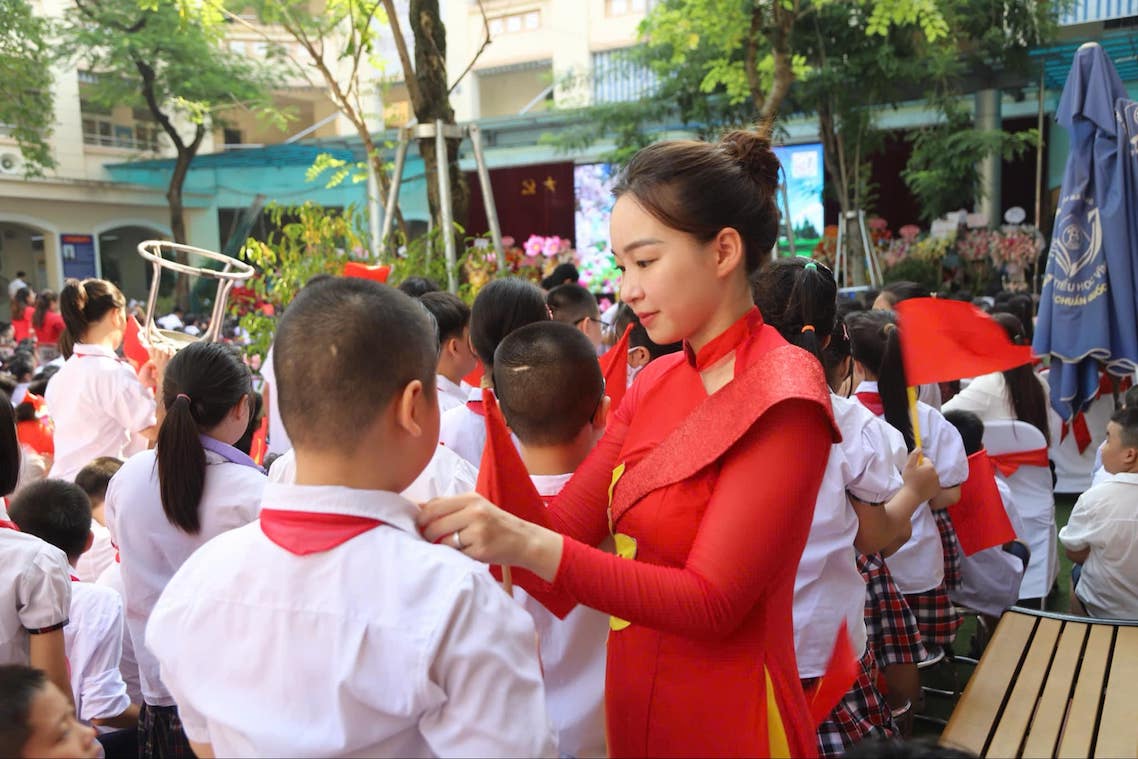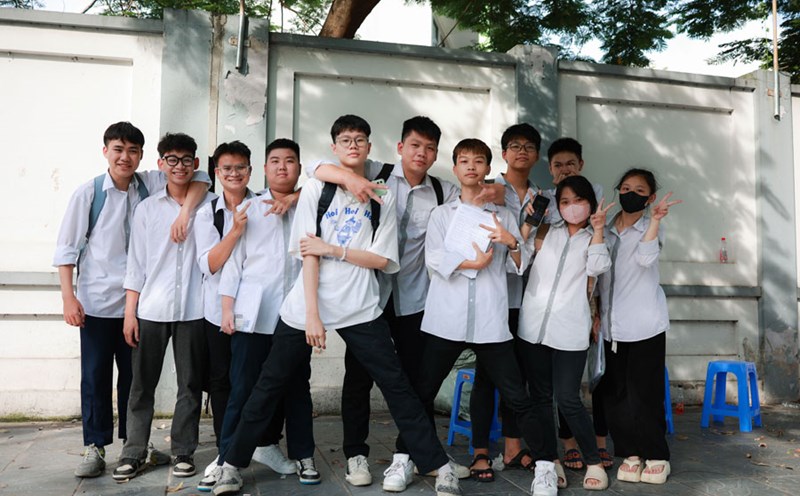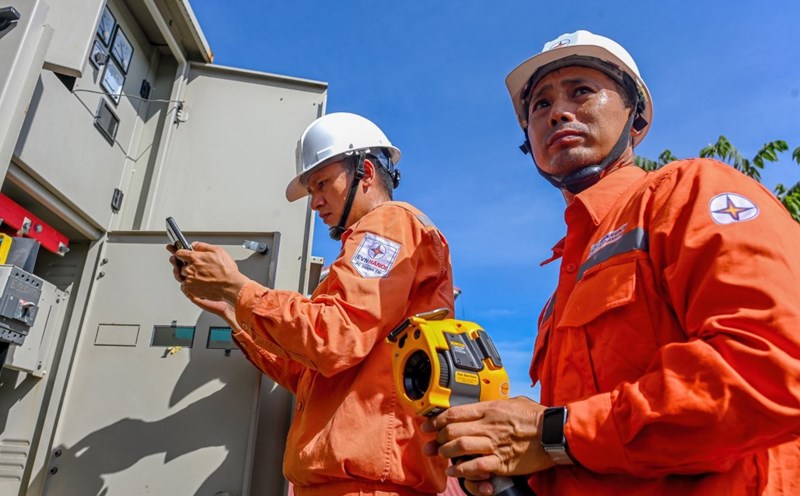Ahead of the 2025 - 2026 school year, Minister of Education and Training Nguyen Kim Son discussed the significance of the opening ceremony, the opportunities and challenges for the education sector, as well as solutions to manage extra classes and overcome the shortage of teachers in the new school year.
Dear Minister, what is the special significance of the opening ceremony of the 2025-2026 school year for Vietnamese education at the present time?
- The opening ceremony of the 2025 - 2026 school year takes place in a special context: The whole country celebrates the 80th anniversary of National Day; conducts the historic "arrangement of painted river painting"; organizes Party Congresses at all levels... For the education sector, the new school year begins as an occasion to celebrate the 80th anniversary of the education sector's tradition, also the 80th anniversary of the establishment of the National Ministry of Education. This is not only an opportunity for us to look back on the 50-year journey of education and national development, but also an opportunity to be more aware of the mission and responsibility of education in creating people, building and developing the country, and integrating in the new era.
The significance of the opening ceremony is even deepened when 52,000 educational institutions across the country are connected online combined with live television, with the presence of the highest leaders of the Party and State, to spread the belief, spirit and determination to bring Vietnamese education to new heights.

In the context of current educational innovation, what are the opportunities to be grasped and the challenges to overcome in the new school year, Minister?
- This school year, the education sector is facing an unprecedented opportunity. Never before has education and training received so much attention and expectation from the Party and State as it is now. The most important of which is the Politburo's issuance of Resolution 71-NQ/TW on breakthroughs in education and training development. This is an important political foundation to further promote the fundamental and comprehensive innovation of education and training that was established in Resolution 29-NQ/TW (2013) and continued to be emphasized in Conclusion No. 91-KL/TW (2024).
Along with that, a national target program on education and training development is being developed; four important laws on education (Children's Law; Education Law, Higher Education Law and Vocational Education Law amended) have been and are expected to be issued this year to create a solid foundation for operating a modern, synchronous and effective education system. Digital transformation, the application of artificial intelligence and STEM education are also opening up opportunities for education to enter the stage of improving quality and comprehensively innovating.
In addition to opportunities, the education sector also faces many challenges. The operation of the two-level local government model, especially at the commune level, poses a high requirement for managing changes in organization, personnel and apparatus. The issue of fairness in education; extra teaching - extra learning; recruitment, rotation of teachers; popularization are also challenges that the industry must resolutely address. In addition, absorbing huge investment resources in the coming time, ensuring efficiency and compliance with regulations also requires great efforts and attempts.
So what are the viewpoints and solutions for managing extra teaching and learning of the Ministry in the 2025-2026 school year to both meet the needs of society and ensure fairness in education?
- Regarding the management of extra teaching and learning, the Ministry of Education and Training continues to adhere to the viewpoint that "additional learning can bring consolidation of knowledge, but less value to human development". The profound consequences of the widespread situation of extra teaching and learning require continued drastic correction.
Therefore, in the 2025-2026 school year, the Ministry of Education and Training will continue to direct and urge localities to issue regulations on management of extra teaching and learning to enhance the responsibility of the government, while requiring educational institutions to effectively implement the GDPT Program.
Given the shortage of teachers in many localities, what orientations and solutions will the education sector have to ensure the quality of teaching and learning in the new school year, Minister?
- In the period of 2022 - 2026, the Education sector will have 65,980 positions added by the Politburo. In the two school years 2022 - 2023 and 2023 - 2024, the whole country recruited more than 40,000 teachers. However, due to the continuous increase in the number of students and classes, the demand for teachers has also increased sharply (in the 2023 - 2024 school year, 13,676 more teachers are needed; in the 2024 - 2025 school year, about 22,000 more teachers are needed). Therefore, many localities still have a shortage of teachers.
The main reason is due to limited recruitment sources. In some subjects such as Informatics, Foreign Languages, and Arts, pedagogical majors are difficult to enroll because teachers' income is still low. In addition, the process of allocating and recruiting staff in many localities is still slow and prolonged.
In this situation, the Ministry of Education and Training has been implementing many solutions such as: Directing training institutions to open industry codes, train teachers according to local actual needs, especially specific subjects; requiring localities to recruit enough assigned staff; directing localities to review and arrange school networks; piloting autonomous mechanisms in some public preschools and general schools; promoting socialization...
Along with solutions from the Central Government, the Ministry recommends that localities proactively recruit enough assigned staff, have policies to attract and support teachers, and arrange funding to implement teacher contracts according to regulations.
Thank you for sharing!











